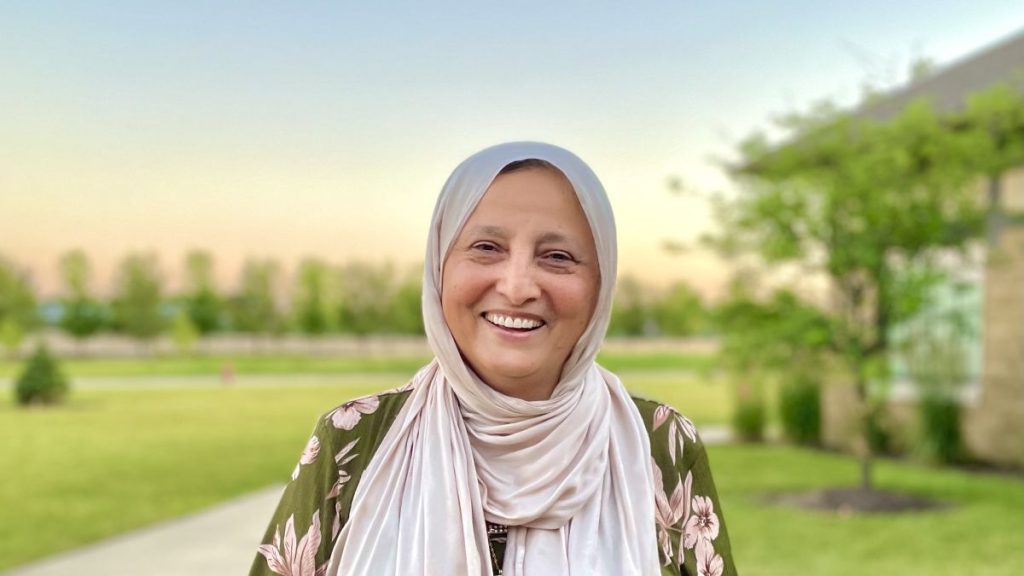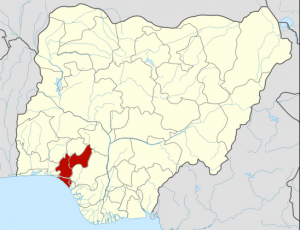She became a refugee as a teenager and now runs a non-profit dedicated to helping women like herself

“We just put our shoes on and we were all crying.” It was 1979. The Soviets had invaded Afghanistan and word spread that troops would be coming to her family’s village the next day to burn down houses. Not knowing what was happening or where she was headed, Bibi and her family of 12 began a difficult two-day journey on foot to Pakistan. “We didn’t want to leave home. We didn’t know where we were going to end up,” Bahrami said. “It was a lot of uncertainty.” It’s a feeling that welled up again for her as she watched news of Russia’s invasion of Ukraine. Reading the headlines and seeing the lines of Ukrainian refugees brought back bad memories.”When I saw that destruction, the damage, the bombing and killing of humans, it just hurts me. There are a lot of memories. When people even say ‘Russian,’ my body was like shaking about how cruel and how much damage they did to the Afghan people.”As the world recognizes International Women’s Day, it’s women like Bahrami whose work strives to make life better for women. International Women’s Day celebrates the headway women have made so far in their pursuit of equality and also calls for more progress around the world. That’s something Bahrami has dedicated her life to. After she was driven from her home, Bahrami and her family spent the next six years living in a refugee camp in Pakistan. Life was hard, but she said her family made the most it. They started out living in a tent but eventually made a sort of “mud house.” Much like life in Afghanistan, however, girls in the refugee camp did not attend formal school. “Because of security, girls did not have school there. But my brothers did, and I was very eager to study and learn and studied with my brothers.” Despite all the hardships, the camp did bring a new light into her life. It’s where she met her future husband, an Afghan student who had studied in America and who would eventually help them move to the US.A reawakeningBahrami and her husband, Saber, moved to Muncie, Indiana, raised six kids and eventually brought her parents and other family members to the US. Being out of Afghanistan provided Bahrami with a lot of experiences that wouldn’t be available to her back home. “I attended GED classes, and I was so inspired by the opportunity. I had daycare for my children, and I can still study and go to school. I was very, very inspired by those opportunities. And I say I want to do this for the girls I left behind.”Inspired and now empowered to help the women and children back in Afghanistan, Bahrami had her dream, but having just had her sixth child, she wanted to wait until the time was right. Then, the events of September 11 took place. “I said, ‘Now, I have to do something.'”That’s when her foundation, Afghan Women’s and Kids’ Education and Necessities (AWAKEN), began to take shape.Hope for all refugeesThe theme for this year’s International Women’s Day is “Break the Bias.” Bahrami has broken the bias for hundreds of women in Afghanistan by giving them an education and access to health care. In return, they have transformed the district of Beshood, the place she once fled in fear.Though she still lives in the United States, Bahrami is proud of her old village, which has more than doubled in population since 2002. “When we started the school we had 220 students. Now we have over 2000.”But an old struggle has reemerged in Afghanistan: the Taliban. In August 2021, the Taliban regained control of the country, forcing many to leave in fear. As refugees began making their way to the United States, Bahrami saw another opportunity to support to Afghan women. Only this time, it would be in her adopted hometown of Muncie, Indiana. Bahrami and AWAKEN started a new project, MARRC: Muncie Afghan Refugee Resettlement Committee. It’s an all-volunteer group that helps Afghan refugees find housing, jobs and support. So far they have taken in around 28 families.Frima, 26, just arrived in Muncie with her 2-year-old son. Her life was in danger because she worked with other women at a family-focused non-profit — something that is strictly forbidden by the Taliban. She left her husband behind at the Kabul airport, not knowing when she or her child will ever see him again. But thanks to Bahrami, the young mother is hopeful for the future. “I really appreciate and am very, very thankful for Bibi,” Frima told CNN.As Bahrami sees the million-plus people now fleeing Ukraine, she looks at her own community accepting refugee families and touts worldwide acceptance as a way for a better tomorrow for everyone.”I mean, anywhere, any country, any part of the world, I feel like the system would benefit from representation of women and men in all walks of life, leadership and education for the necessity for humanity and a sustainable society,” she said. She points out the crucial role that women play. “In Afghanistan, and in many countries including in this one, women have suffered and have not been paid equally. It is time for the world to recognize the values of women,” Bahrami said. “I feel that sometimes (women) are disadvantaged and not respected in societies and those things hurt my heart. God created all of us with equal rights and opportunities. There might be barriers but we have our rights and that should be appreciated.”




